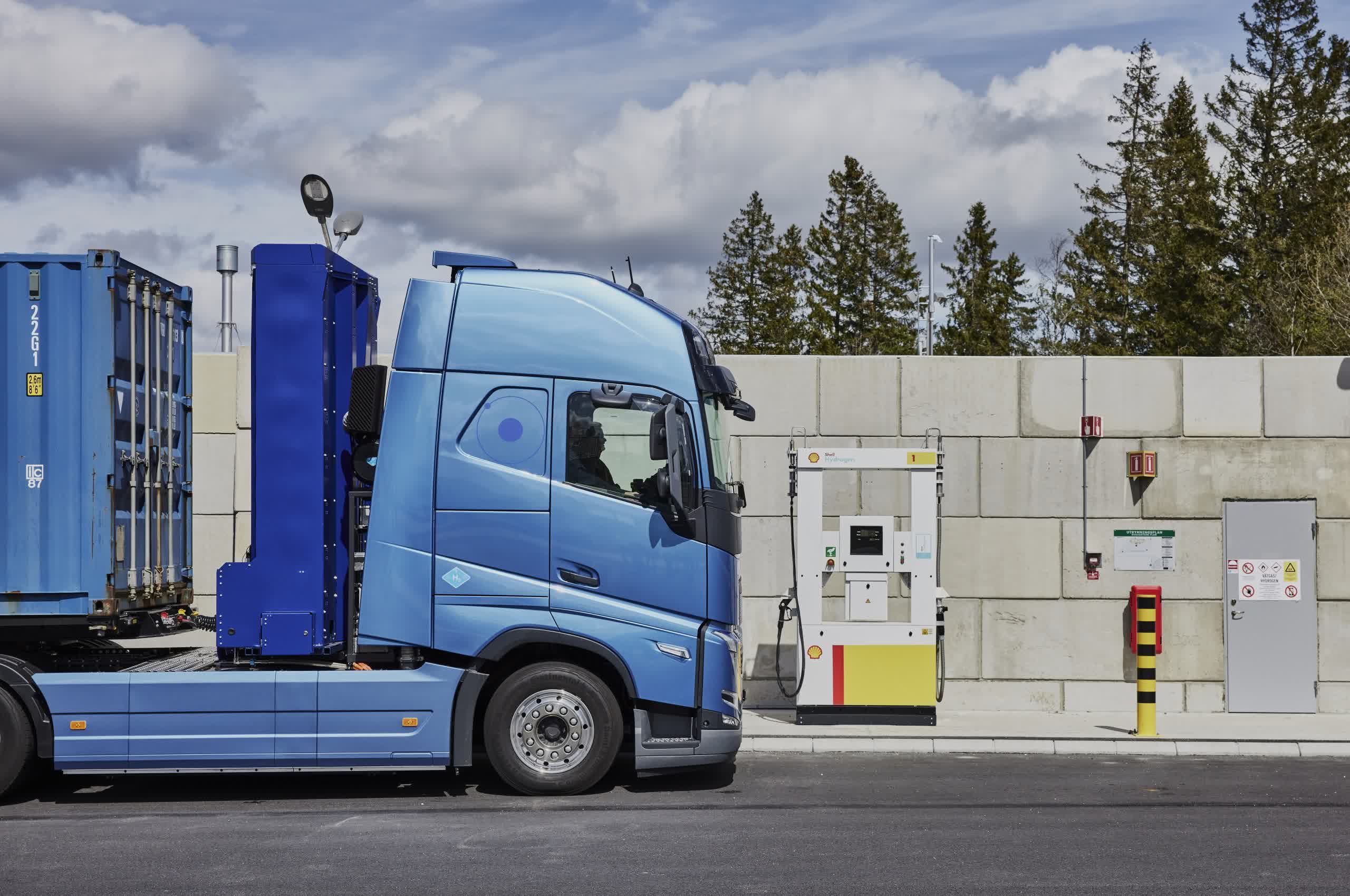The big picture: Hydrogen fuel cell trucks could become a great alternative to battery-powered electric semis in the future. They feature a range and load capacity closer to diesel-powered trucks, with refueling being far quicker than charging an EV. However, hydrogen production and distribution don't always use renewable sources, meaning it's not necessarily a "green" solution.

Volvo's truck manufacturing division has just announced that it's testing vehicles powered by hydrogen fuel cells. The company claims these trucks will have an operational range of up to 1,000 km (621 miles), a refueling time of under 15 minutes, and a total weight (including freight) of over 65 tons.
If those figures are accurate, it sounds like an attractive alternative to battery-powered electric semis for long hauling. For comparison, the Tesla Semi has an advertised range of up to 800 km (497 miles) and will reportedly take over 30 minutes to charge at a megawatt charging station.
Each truck will come equipped with two hydrogen fuel cells that can generate 300 kW of electricity onboard. CellCentric, a joint venture between Volvo Group and Daimler, will be the supplier of these cells.
The advantage of using hydrogen as a fuel is that it only emits water vapor instead of polluting exhaust fumes. However, the energy used in producing hydrogen (or rather, separating it from other elements) doesn't necessarily have to come from renewable sources. In fact, the vast majority of hydrogen generation is based on fossil fuels nowadays.
Another problem is the limited availability of hydrogen refueling stations. There are under 60 stations operational in the US at the moment, with all of them being in California. That number will supposedly only double over the next year.
https://www.techspot.com/news/95027-upcoming-hydrogen-fuel-cell-semis-volvo-have-621.html
